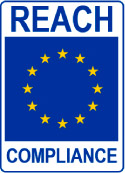What are cookies?
The website owned and operated by Cometal, S.A. (hereinafter “the website” or the “website”) uses cookies and/or similar technologies that store and retrieve information when you browse. In general, these technologies can be used for a wide range of purposes, such as, for example, recognising you as a user, obtaining information about your browsing habits, or personalising the way in which content is displayed.
The user may configure their browser to notify and reject the installation of cookies sent by the website, without this affecting the possibility of accessing the contents of said website, but the quality of the website’s operation may be reduced.
The specific uses we make of these technologies are described below.
What types of cookies are there?
Cookies, depending on their Permanence, can be divided into:
- Session cookies: are those designed to collect and store data while the user accesses a website. They are usually used to store information that is only of interest for the provision of the requested service. They expire when the user closes the browser.
- Persistent cookies: are those in which the data continues to be stored in the terminal and can be accessed and processed for a defined period of time depending on when the purpose for which they are used is fulfilled (for example, for the user to remain identified in the Services) or when they are manually deleted.
Depending on their Owner, they can be divided into:
- Own cookies: these are those that are sent to the user’s terminal equipment from a computer or domain managed by the editor itself and from which the service requested by the user is provided.
- Third-party cookies: these are cookies that are sent to the user’s terminal equipment from a computer or domain that is not managed by the editor, but by another entity that processes the data obtained through the cookies.
Additionally, depending on their purpose, Cookies can be classified as follows:
- Technical cookies: are those that allow the user to browse through a website, platform or application and use the different options or services that exist on it, including those that the editor uses to allow the management and operation of the website and to enable its functions and services such as, for example, identifying the session or controlling traffic and data communication.
- Preference or personalisation cookies: this type of cookie remembers your preferences for the tools found in the services, so you do not have to reconfigure the service each time you visit. By way of example, this type of cookie includes:
- Volume settings of video or sound players.
- Video bitrates that are compatible with your browser.
- Geo-location Cookies: these Cookies are used to find out what country you are in when you request a service. This Cookie is completely anonymous, and is only used to help target content to your location.
- Registration Cookies: are generated once the user has registered or subsequently logged in, and are used to identify you in the services for the following purposes:
- Keep the user identified so that, if you close a service, the browser or the computer and at another time or another day re-enter the service, you will continue to be identified, thus facilitating your browsing without having to identify yourself again. This functionality can be deleted if the user clicks on the “close session” function, so that this Cookie is deleted and the next time the user enters the service he/she will have to log in to be identified.
- Check whether the user is authorised to access certain services, e.g. to participate in a competition.
- Analysis or measurement Cookies: each time a User visits a service, a tool from an external provider generates an analytical Cookie on the User’s computer. This Cookie, which is only generated during the visit, will be used in future visits to the Web Services to anonymously identify the visitor. The main objectives pursued are:
- Allow anonymous identification of browsing users through the “Cookie” (identifies browsers and devices, not people) and therefore the approximate counting of the number of visitors and their trend over time.
- Identify anonymously the most visited and therefore most attractive content for users.
- To know if the user accessing the site is new or a repeat visitor.
Important: Unless the user decides to register for a Web service, the “Cookie” will never be associated with any personal data that can identify him/her. These Cookies will only be used for statistical purposes to help optimise the User’s experience on the site.
- Behavioural advertising Cookies: this type of “Cookies” allows to expand the information of the advertisements shown to each anonymous user in the Web Services. Among other things, they store the duration or frequency of viewing advertising positions, interaction with them, or the user’s browsing and/or sharing patterns, as they help to create a profile of advertising interest. In this way, they make it possible to offer advertising related to the user’s interests.
- Third-party advertising Cookies: in addition to the advertising managed by the Website in its Services, the Website offers its advertisers the option of serving advertisements through third parties (“AdServers”). In this way, these third parties can store Cookies sent from the Web Services from Users’ browsers, as well as access the data stored in them.
What cookies do we use?
The cookies we use on our website are:
Own Cookies: these are those that are sent to the user’s terminal equipment from a computer or domain managed by the editor itself and from which the service requested by the user is provided.
- PHPSESSID: technical session cookie, expires when the browser is closed. Strictly required by the programming language.
- pll_language: technical cookie, with a duration of 365 days, used to know the language in which the website is displayed. Strictly necessary.
- moove_gdpr_popup: technical cookie, with a duration of 365 days, used to know the preferences selected by the user in terms of cookies. Strictly necessary.
How to disable Cookies?
It is usually possible to stop accepting browser Cookies, or to stop accepting Cookies from a particular Service.
All modern browsers allow you to change your cookie settings. These settings can usually be found in the “options” or “preferences” menu of your browser. You can also configure your browser or your email manager, as well as install free plug-ins to prevent Web Bugs from being downloaded when you open an email.
The Website provides guidance to the User on how to access the menu for configuring cookies and, where appropriate, private browsing in each of the main browsers:
- Internet Explorer: Tools -> Internet Options -> Privacy -> Settings. (For more information, you can consult Microsoft support or the browser’s Help).
- Firefox: Tools -> Options -> Privacy -> History -> Custom settings.
- Chrome: Settings -> Show advanced options -> Privacy -> Content settings.
- Safari: Preferences -> Security (For more information, see Apple support or browser Help).
Likewise, the user can modify, configure and, where appropriate, revoke the consent granted for the installation of cookies, using the modal located in all the tabs of the website, and/or by clicking on the following link.
Rights of data subjects
We remind you that data protection regulations, in articles 15 to 22 of the GDPR, allow data subjects to exercise their rights of access, rectification, erasure (“right to be forgotten”), objection, portability, limitation of processing, and the right to object to automated decisions (including profiling). You can exercise these rights at our physical address located at C/ José Lázaro Galdiano 4 4º, 28036, Madrid, as well as by e-mail to dario@cometalsa.com. You can find more information in our Privacy Policy.
Conservation periods
In compliance with article 13.2.a) of the RGPD, we inform you that cookies will be installed for a specific period of time. In this regard, if the user wishes to consult the retention periods and obtain more information on this point, they should consult the “expiry” column in the “What cookies do we use” section.
Can the Cookie Policy be modified?
Cometal, S.A. may modify this Cookies Policy in accordance with legislative or regulatory requirements, or in order to adapt this policy to the instructions issued by the European and/or national control authorities (in our case, the Spanish Data Protection Agency), for which reason users are advised to visit it periodically.
When significant changes are made to this Cookie Policy, they will be communicated to users either through the website.
Finally, you may consult our Privacy Policy for additional information (article 13 of the RGPD) on the processing of your personal data by Cometal, S.A.




